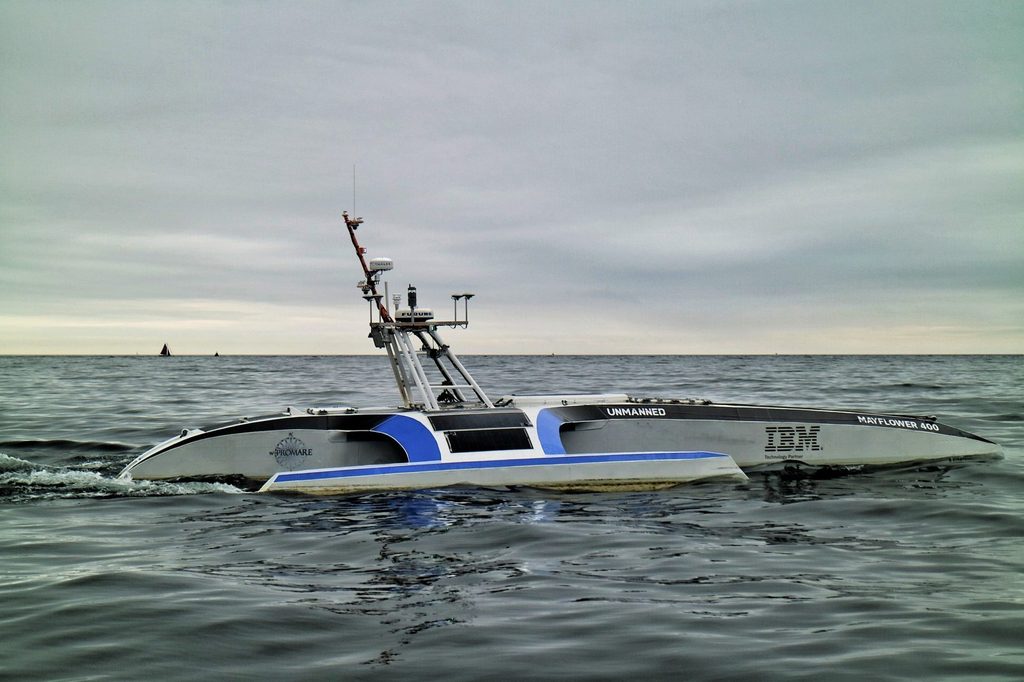The advent of autonomous vehicles is not confined to land; it extends to the high seas as well, and Belgium is leading the way.
The maritime industry is undergoing a digital transformation, envisioning a future where ships sail without human crews. Belgium has emerged as a pioneer in the development of autonomous ships, signalling a remarkable shift in the world of maritime navigation.
Belgium has taken bold steps toward advancing autonomous shipping technology. In April 2022, the Mahi2, an unmanned solar-powered vessel, successfully completed a six-month journey to Martinique, showcasing Belgium's capabilities in autonomous navigation.
Situated in the heart of the world's busiest maritime highway, the North Sea, Belgium occupies a strategic position for testing and implementing autonomous shipping solutions.
An autonomous vessel relies on an array of sensors and onboard instruments, including radar and satellite connections, to operate without a human crew. These vessels collect vast amounts of data, enabling them to make autonomous decisions and interact with their surroundings, revolutionising the maritime industry.
The International Maritime Organization defines four degrees of autonomy for vessels:
Degree 1: Vessel with automated processes and decision support, where seafarers are on board to operate and control shipboard systems.
Degree 2: Remotely controlled vessel with seafarers on board, operated from another location with seafarers ready to take control.
Degree 3: Remotely controlled vessel with no seafarers on board, entirely controlled from another location.
Degree 4: Fully autonomous vessel with an operating system capable of making independent decisions.
Developing autonomous navigation in the North Sea presents unique complexities compared to inland waterways. Ensuring secure access to telecommunications networks for remote control, accounting for shallow coastal waters, offshore structures, navigation beacons, and a multitude of vessels of varying sizes all require careful consideration.
Additionally, navigating the uncharted waters of autonomous shipping brings both opportunities and challenges. Cybersecurity threats, hardware/software failures, ambiguous legal liability, complex regulatory compliance, and safety concerns are among the challenges that require careful management.
Currently, there is no comprehensive international regulatory framework in place for autonomous shipping. Belgium took an initial step by adopting a temporary royal decree in June 2021 while awaiting international legislation, deliberated within the International Maritime Organization.
The international community aims to adopt a non-binding code, the Maritime Autonomous Surface Ships (MASS) Code, scheduled to come into effect in 2025. This code will serve as the foundation for a mandatory rulebook governing autonomous surface ships, anticipated to be in force by January 1, 2028.
Related News
- Cargo ships in Flemish ports rarely comply with international regulations
- More expensive packages? Better driver conditions will likely cost customers more
Despite the current uncertainty, Belgium is committed to forging ahead in this new era of maritime innovation. In collaboration with the United Kingdom and Denmark, Belgium signed an agreement to facilitate autonomous navigation within their waters. This groundbreaking pact allows vessels to operate across a significant portion of the North Sea without needing separate permits from each country, promoting seamless maritime traffic.
Belgium aspires to lead Europe in autonomous maritime traffic management. Plans are underway to establish a dedicated control center for autonomous vessels within the next decade. An in-depth study has been conducted to lay the groundwork for addressing challenges and devising solutions in this groundbreaking field.

